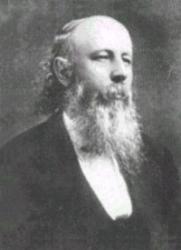In addition to the administration of Camphor, the patient’s extremities should be vigorously rubbed, and bottles of hot water applied to them until the natural heat is restored. The room should be well ventilated, and cold water given freely if desired.
Carbo vegetabilis. Sometimes the collapse is still more marked. Even at the outset, the tongue and very breath are cold. The voice is extinct. There is no vomiting, diarrhoea, spasm, or pain. The urine is suppressed. Give Carbo vegetabilis every five minutes, until warmth returns.
Veratrum alum. When the evacuations are profuse, both upward and downward, consisting of rice-water and frothy fluids, with great anguish in the abdomen, thirst for cold water, which is taken in large quantities, but is vomited as soon as swallowed; with contracted features, cold sweat on the forehead, hands and feet, moderate cramps in hands, feet and calves; with suppression of urine, Veratrum album should be given; a dose every five minutes until decided improvement is manifest.
In cases requiring Camphor the COLLAPSE is the most prominent feature. In those which require Veratrum album, the EVACUATIONS and the COLDNESS are the most prominent symptoms. But in those cases which call for Cuprum, the SPASMS or CRAMPS are most prominent.
Cuprum metallicum. When the evacuations are not very copious, but the spasms in the chest and stomach are very painful, with great tenderness to touch, the spasms coming on in paroxysms, both in the stomach and in the extremities; the thirst is moderate; the vomiting is allayed, for a time, by drinking water; the face is blue and cold; the respiration short and labored; the voice husky; and the urine suppressed, give Cuprum metallicum as directed for Veratrum.
ADMINISTRATION OF REMEDIES. Where medicines in liquid form are used, a drop of the liquid, on sugar or in water, may be used as a dose; where used in the form of powder, as much as would lie on a three-cent piece; where globules, three or four.
Inconvenient results have been observed from the use of too large and too frequent doses of Camphor; and the public should be cautioned against using Camphor without a clear indication of its necessity. Where too much has been taken, it produces terrible anguish and burning at the pit of the stomach, so great as to drive the sufferer almost to despair. A few globules of Phosphorus will promptly antidote the Camphor and relieve the patient.

